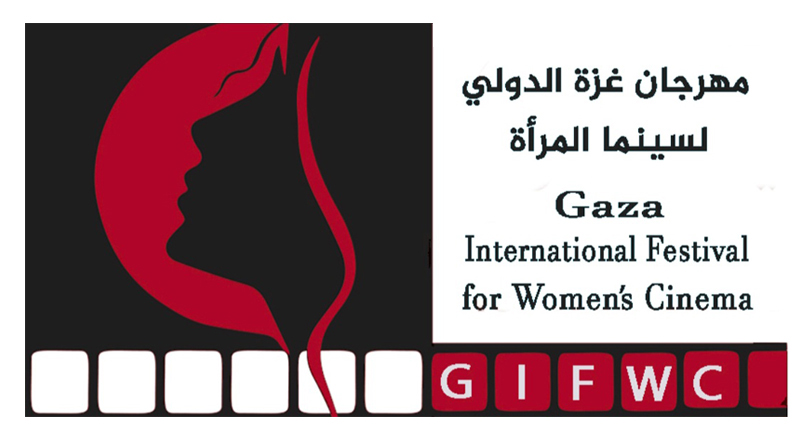by Elizabeth Heyes
Those who have been following LPFF so far will not be surprised to hear of the popular support that the Palestinian cause has amongst Jewish and Israeli activists, particularly in the film Budrus. However, in Jews Step Forward, the complexities of the relationship between Judaism, the state of Israel and the Zionist cause take centre stage and unpick the dangerous conflation between religion and politics that has threatened to silence progressive voices with accusations of anti-Semitism.
In the documentary, the testimony of 24 Jewish Americans first explores their childhood memories within the Jewish community, whether strictly religious or more “culturally” Jewish, it’s values and its championing of social justice. From the outset, the documentary highlights the engrained Jewish tradition of Tikkun Olam, or “acts of repair”, which have come to be synonymous with movements in support of social justice. Manifestations of this tradition in the United States is some Jewish organisations’ solidarity with the Selma to Montgomery civil rights march in 1965, its anti-war ideals, and its liberal and democratic values.
Amidst the post-holocaust cultural trauma in the Jewish community, the founding of the Jewish state of Israel in 1948 was celebrated by communities across the US. Many of the speakers have personal memories of the euphoria that followed, with the preservation and strengthening of Israel being encouraged through Birthright trips to Israel and Zionist youth groups.
However, as the documentary progresses, we see that in the construction of a Jewish state there has been a conflation between religion and politics which has proven disastrous for the liberal causes that Judaism so highly values.
The myth of this homeland in Palestine being “a land without people for a people without land”, and the rhetoric pushed by its political founders, that it was essential for Jewish youth to protect and nurture it, (according to the speakers/witnesses) has resulted in the radicalisation of certain sections of the Jewish community, increasing discrimination and injustice against non-Jewish Palestinians, and the silencing of alternative histories to that of Zionist propaganda.
In their testimony, the speakers track the events which led them to the realisation that the land they had been taught was theirs to nurture and protect was not everything they believed. For Phil, his suspicions were roused by the damning similarities that Israeli rhetoric held with the racist propaganda he witnessed in 60’s and 70’s Philadelphia; images of graffiti taken in Israel and Palestine confirm his words, inciting violence and suppression against Palestinians. In the case of Rabbi Alissa Wise, it was a protest on the campus of the Hebrew University on Jerusalem condemning the 1948 Nakba which saw the expulsion of over 700,000 Palestinians from their land for the state building ambitions of Israel. Having attended Jewish day school and Zionist summer camp, this was Weiss’ first exposure to an alternative perspective on the founding of the Jewish state.
Another important aspect of this particular documentary is its reminder that this state-building project would not have been possible without the encouragement of many factors unrelated to Jewish calls for a homeland. British colonial intentions are touched on, along with the “Red Scare” in the early 20th century United States which led to an atmosphere of fear towards radical and liberal causes, Jews being common targets for these suspicions after the trial of Julius and Ethel Rosenberg. Christian Zionism, an ambiguous title, is also mentioned; a product of guilt for the role of Christian fascists in the persecution of Jews as well as certain groups’ belief in the necessity for Jewish return to their spiritual homeland before Jesus’ second coming, this movement also encouraged lent its weight to the Zionist cause. We see clearly that Israel was not exclusively the desire of the Jewish community, but a project that benefited the economic, spiritual and ideological interests of many Western states and other religious groups.
That being said, the speakers featured do not shy away from criticising the Israeli state on its decisions since, with harrowing images showing the traumatic reality of the conflict. Both Palestinians and Israelis, we are reminded, have been perpetrators of war crimes, however what is shocking to both the speakers and the viewer is Israel’s efforts to hide the ugly truth. Analogies are drawn between the separation wall along the border between Israel and the West Bank and the Warsaw ghetto; the final solution was enabled by silencing the plight of the Jews and removing it from view, says Alice Rothchild. Carol Sanders describes her friend’s response to the question of Israel’s role in Palestinian oppression, “I don’t want to know”. Thus, a pattern of misinformation emerges, contributing to an insidious “see no evil, hear no evil” atmosphere.
Though the Palestinian suffering takes centre stage, an insightful mention is given to the effect that Israel’s problematic statehood has for its own youth. The power put into the hands of soldiers who are drafted at as young as 18 years is not only humiliating for the Palestinians who are subject to their interrogations at checkpoints on their own land, but also for the soldiers’ own psychological state. This is discussed further by Alice Rothchild in the LPFF speaker event which can be seen here.
Taking into account the speakers’ heavy criticism of the violence of certain Israeli policy, compounded by the images accompanying it, their support for the BDS (Boycott, Divestment, Sanctions) movement is a fitting choice of resistance. A recent episode of The Crown might prove useful in demonstrating the power of this approach, in which global powers agree to economic sanctions in order to bring down the South African Apartheid regime. In the documentary we see the popularity of this movement amongst young people in particular, highlighting the products grown by Israeli companies on land belonging to Palestinians under international law and taking it upon themselves to make their communities aware of the struggle which may seem so removed from Western society, but which benefits greatly from support we may not even realise we are giving.
This documentary made in 2014 only briefly touches on topics which have come to form the socio-political discourse of 2020; for example, how Israel’s origins in British colonialism enabled the power imbalance that we see in the country today, an imbalance which is just one of many reasons for increasingly popular efforts to de-colonise both public and intellectual spaces in 2020. Another example is the ethno-religious basis on which non-Jewish Palestinians are deliberately targeted, making it no surprise that sections of the Black Lives Matter movement including BLM UK have publicly condemned Zionism and expressed support for Palestinians. Again, this is a topic that is explored in more detail in our speaker event here.
The speakers conclude by returning to the concept of the religious tradition of Tikkun Olam and the long history of Jewish advocacy for progressive causes. Amongst these 24 individuals, the consensus is summarised simply in the words of Mark Braverman, “Working for justice in Palestine was the most Jewish thing that I could ever do.”
You can watch Jews Step Forward here, and our panel discussion on the film here.









